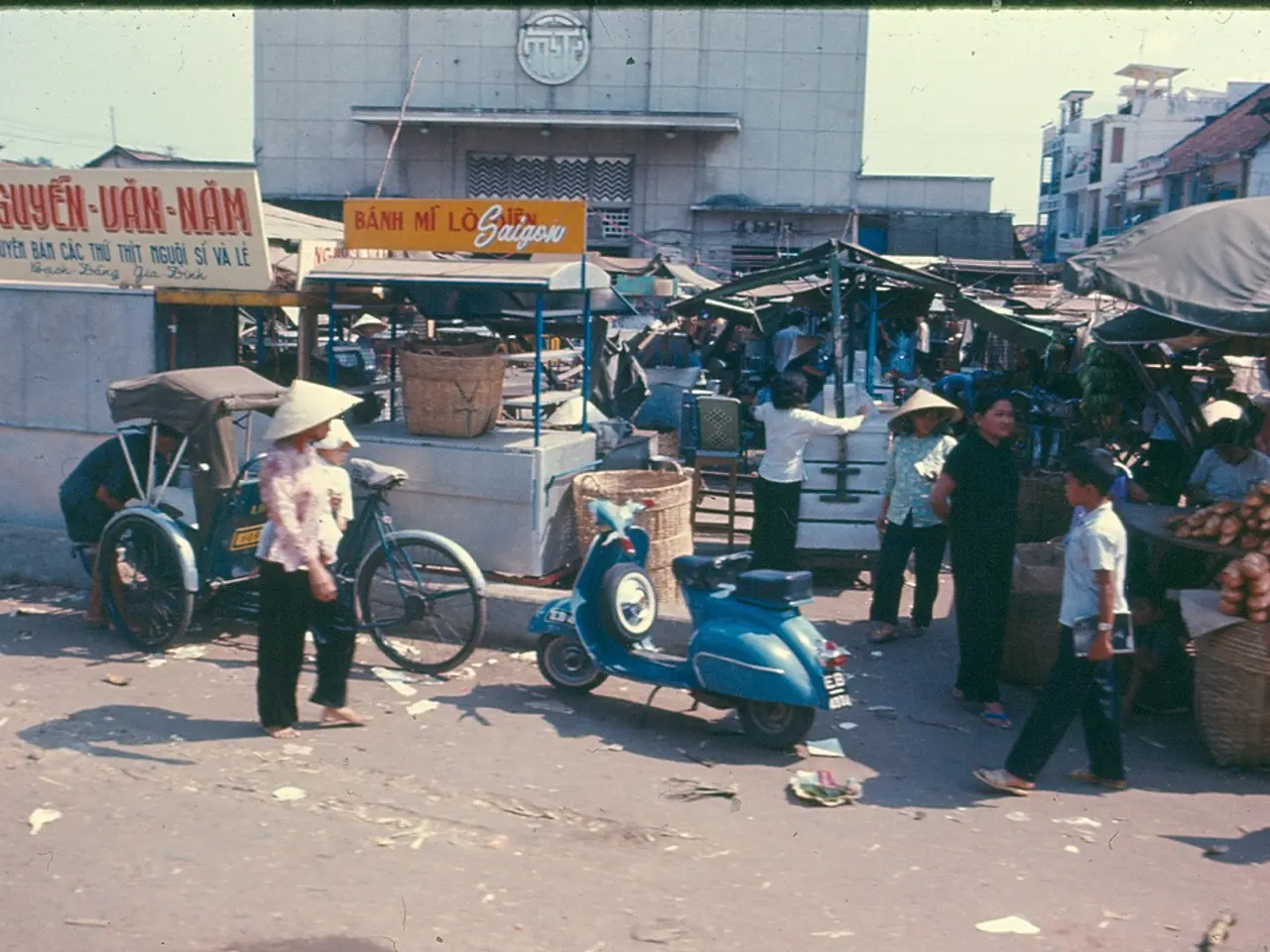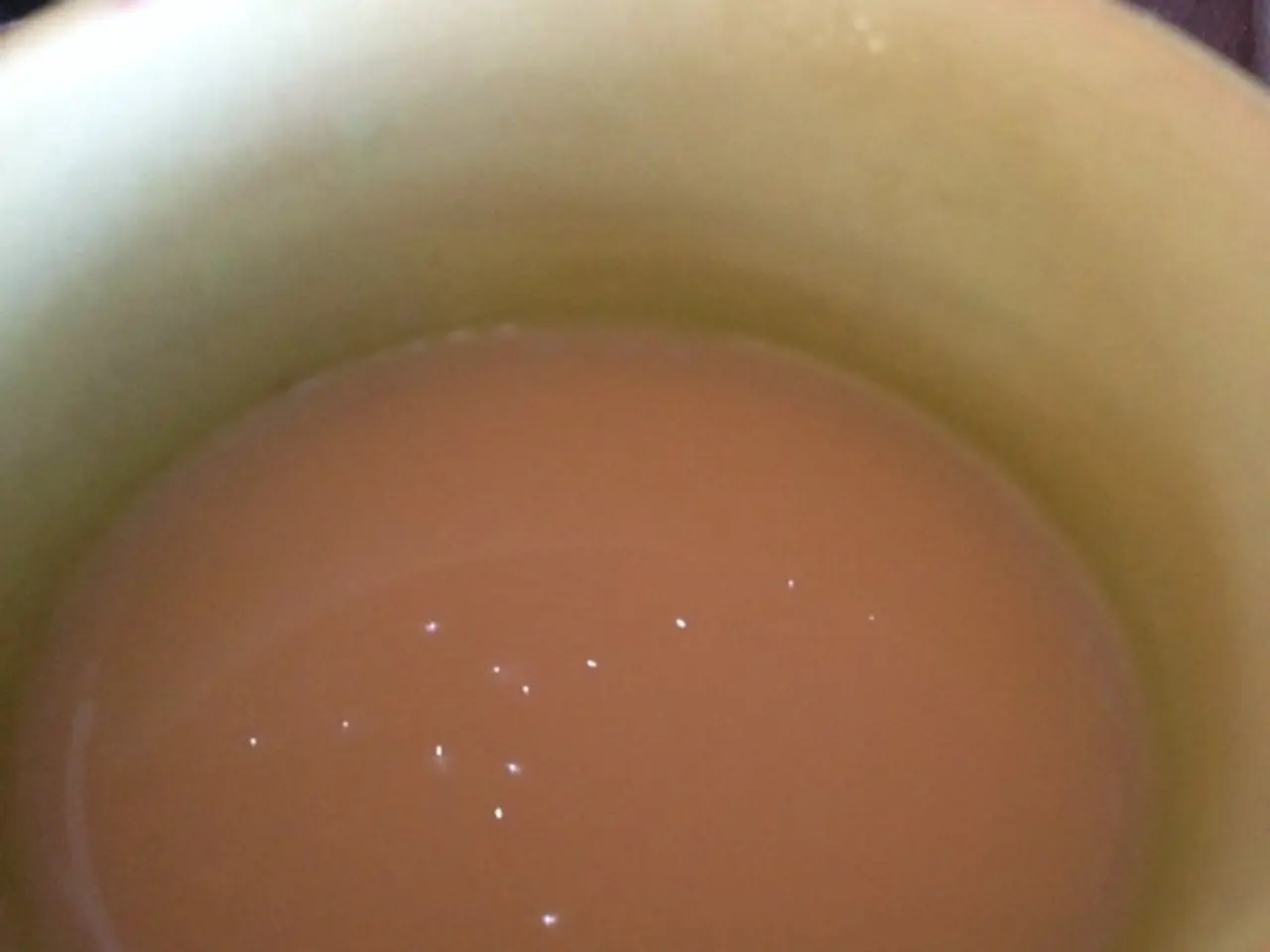Modi's advocacy for "Buying Indian" echoes strongly within political and commercial spheres
India Launches Nationwide Campaign to Promote "Made in India" Products
In an effort to boost domestic trade, create jobs, and uphold cultural heritage, the Confederation of All India Traders (CAIT) has launched a national campaign titled "Indian Goods - Our Pride." The campaign, which begins on August 10, 2025, aims to promote the consumption and sale of Indian-made products across the country (sources [1], [2], [3]).
The campaign, which involves rallies, social media drives, and awareness programs in schools, colleges, and marketplaces, emphasizes the slogan “Only Indian Goods Sold Here” prominently in retail locations. Over 48,000 trade associations nationwide are expected to support the movement (sources [1], [3]).
The "Indian Goods – Our Pride" campaign aligns with Prime Minister Narendra Modi’s call to "buy Indian," reinforcing the vision of Aatmanirbhar Bharat (self-reliant India) by distancing the economy from monopolistic foreign practices. CAIT Secretary General Praveen Khandelwal highlighted that favoring Indian goods will foster economic growth and protect local traders from unfair competition posed by foreign companies (sources [1], [3]).
The movement is part of a broader revival of the Swadeshi movement in 2025, which encourages citizens to prioritize "Made in India" products to boost self-reliance, jobs, and local manufacturing (source [4]).
Politically, the campaign has been used by government leaders to counter criticisms of the Indian economy and underscore the country’s positive growth outlook. Union Minister Hardeep Singh Puri stated that India remains the fastest-growing economy despite global uncertainties (source [5]).
Assam Chief Minister Himanta Biswa Sarma and others have echoed the sentiment, stating that India's economic fundamentals remain strong and resilient (source [6]). Union Agriculture Minister Shivraj Singh Chouhan urged every citizen to commit to the nation by choosing products made in India (source [6]).
The push for Swadeshi goods is being interpreted as a strategic move to bolster the economy, support local producers, and reinforce the government's economic vision. Maharashtra Chief Minister Devendra Fadnavis attributed India's sustained performance to "focused governance, structural reforms, and unwavering commitment to a Viksit Bharat" (source [7]).
Fadnavis also noted that India had risen from the 11th place in 2013-14 to the world's fifth-largest economy, with the fourth spot now within reach (source [7]). The campaign appears to be gaining momentum and institutional backing but is still in its initial phase as of early August 2025 (source [1]).
The campaign comes in response to criticisms from opposition leaders, such as Congress MP Rahul Gandhi, who claimed that the Indian economy is "dead." Top Union ministers, state leaders, and national trade associations have rallied behind Prime Minister Narendra Modi's call to prioritize Indian-made goods (source [8]).
The latest IMF World Economic Outlook report projects India's growth rate of 6.4% in 2025 and 2026, the highest among major economies. Union ministers and state leaders have refuted Gandhi's claim, citing this report (source [6]).
The "Indian Goods – Our Pride" campaign is a significant step towards promoting self-reliance and boosting domestic trade in India. As the campaign gains traction, it is expected to have a profound impact on the Indian economy and local industries.
- The "Indian Goods – Our Pride" campaign aligns with the economic vision of self-reliance, as it encourages the consumption and sale of locally produced goods, also highlighted in political news discussions about Aatmanirbhar Bharat.
- Besides boosting domestic trade and ensuring job creation, the campaign's focus on "Made in India" products has the potential to impact various sectors, intensifying cultural news discourse on traditional Indian manufacturing practices and local industries.







